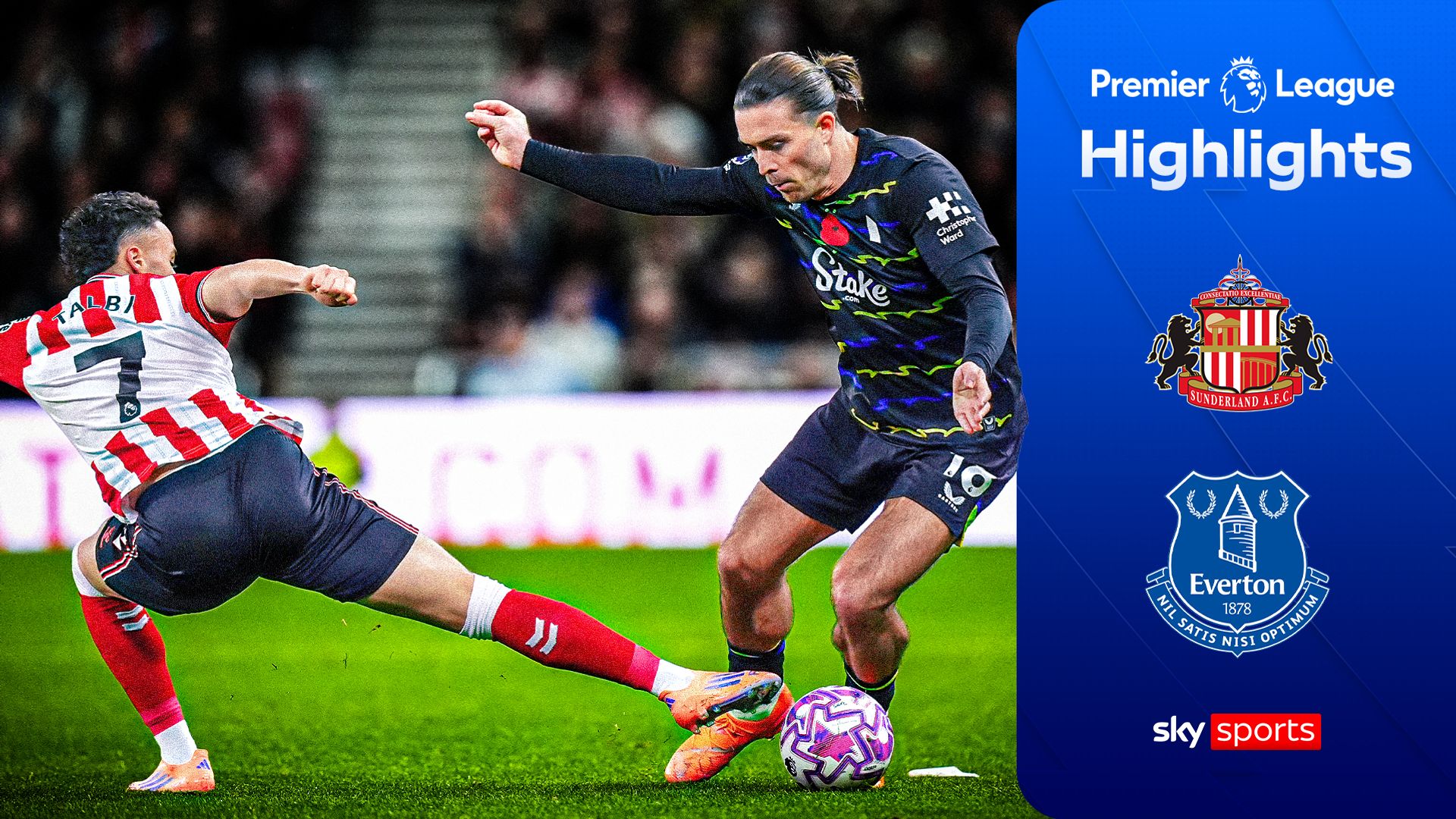Xhaka’s Late Heroics Spark Outrage: A Modern-Day David vs. Goliath as Sunderland’s Rise Challenges the Status Quo of Premier League Giants
In a thrilling encounter that showcased the unpredictable nature of the Premier League, Sunderland faced off against Everton, a match that would ultimately highlight the fierce competition and the shifting dynamics within English football. The game was marked by a stunning strike from Everton’s new sensation, Abdallah Ndiaye, whose goal seemed to secure a vital win for his team. However, Granit Xhaka had other plans, delivering a late equalizer that not only denied Everton the victory but also ignited a firestorm of debate regarding the implications of Sunderland’s resurgence in the league.
Sunderland, a club with a storied history, has experienced its share of ups and downs in recent years. Once a staple of the Premier League, they faced relegation and struggled to regain their footing. However, under the guidance of their current management, the Black Cats have shown remarkable resilience and determination, positioning themselves as a formidable force in the league once more. Their rise to fourth place in the standings is a testament to their hard work and strategic planning, challenging the traditional hierarchy of English football.
The match against Everton was not just another fixture; it was a clash of ideologies. Everton, a club with a rich history and a loyal fan base, has often been seen as a representative of the established order in the Premier League. Their struggles to break into the upper echelons of the league have drawn parallels to the broader societal themes of class and privilege, where the old guard fights to maintain its status against the rising tide of new challengers. Sunderland’s resurgence can be viewed as a metaphor for the underdog’s fight against the establishment, reminiscent of classic narratives in literature and history.
Ndiaye’s goal was a moment of brilliance, showcasing his talent and potential to become a key player for Everton. His strike not only lifted the spirits of the Everton faithful but also served as a reminder of the club’s aspirations to return to the top of English football. However, Xhaka’s late equalizer shifted the narrative, sparking discussions about the fragility of success in the Premier League. The Swiss midfielder’s ability to deliver in crucial moments has made him a polarizing figure, with fans divided over his contributions to the team.
The aftermath of the match saw a flurry of reactions from fans and pundits alike. Many praised Sunderland’s tenacity and ability to compete against established teams, while others lamented Everton’s inability to secure the win despite having the lead. This division reflects a broader trend in football, where the rise of smaller clubs challenges the dominance of traditional powerhouses. The Premier League has become increasingly competitive, with teams like Leicester City and Brighton & Hove Albion proving that success is not solely reserved for the historically successful clubs.
Financial disparities in football have also played a significant role in shaping the current landscape. The influx of money into the Premier League has created a divide between the haves and have-nots, with clubs like Sunderland striving to find innovative ways to compete. Their success in the transfer market, coupled with a strong youth academy, has allowed them to build a squad capable of challenging for top honors. This approach contrasts sharply with clubs that rely heavily on financial backing from wealthy owners, raising questions about the sustainability of such models.
As Sunderland continues to climb the league table, their journey serves as an inspiration for other clubs facing similar challenges. The narrative of the underdog is deeply ingrained in sports culture, resonating with fans who yearn for stories of triumph against the odds. Sunderland’s rise is not just about football; it embodies the spirit of perseverance and the belief that hard work can lead to success, regardless of the obstacles faced.
The implications of this match extend beyond the immediate context of the Premier League. It reflects a broader societal struggle, where established norms are challenged by new ideas and perspectives. The fight for recognition and respect in football mirrors the ongoing battles in various sectors of society, where voices that were once marginalized are now demanding their place at the table. Sunderland’s performance against Everton is a microcosm of this larger narrative, symbolizing the fight for equality and opportunity in a world that often favors the privileged.
As the season progresses, the stakes will only get higher for both Sunderland and Everton. Each match will be a test of character, strategy, and resilience, as teams vie for their place in the Premier League hierarchy. The rivalry between established clubs and rising challengers will continue to captivate fans, fueling debates about the future of football and the values it represents. The outcome of this match may have been a draw, but the implications of Sunderland’s resurgence and Everton’s struggles will resonate long after the final whistle has blown.

